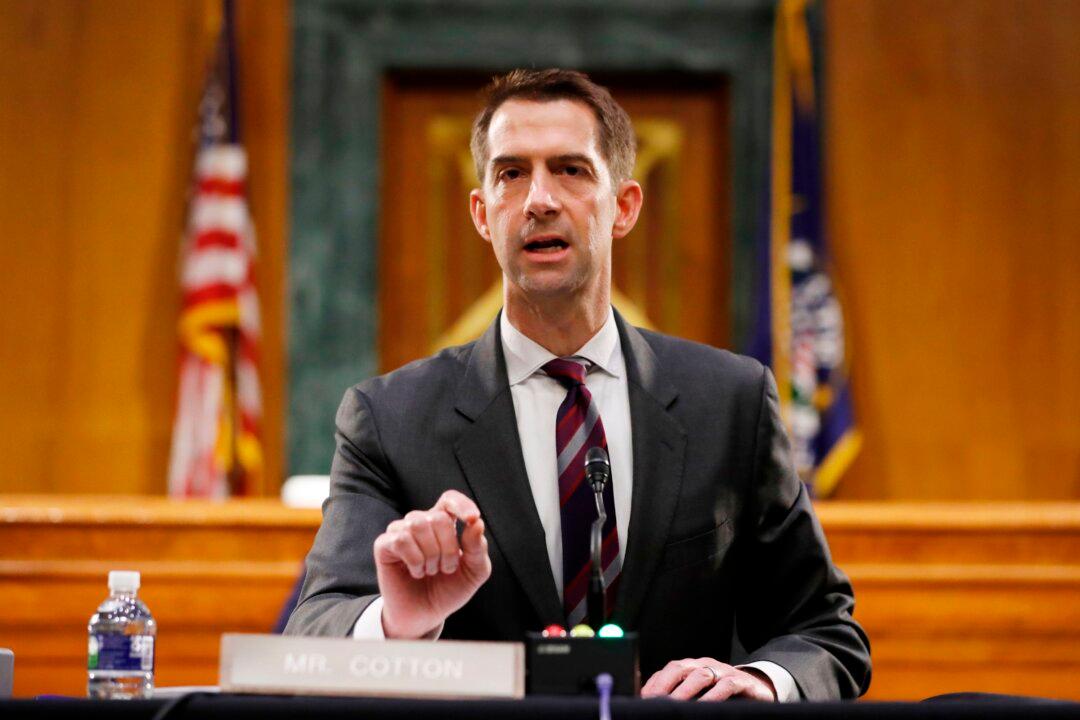Sen. Tom Cotton (R-Ark.) has introduced legislation to prevent individuals convicted of criminal acts related to the campus protests from having their student loan debt forgiven.
“Americans who never went to college or responsibly paid off their debts shouldn’t have to pay off other people’s student loans. They especially shouldn’t have to pay off the loans of Hamas sympathizers shutting down and defacing campuses,” Mr. Cotton said in a press release on May 2.




